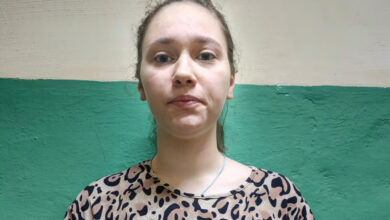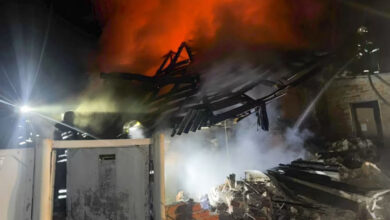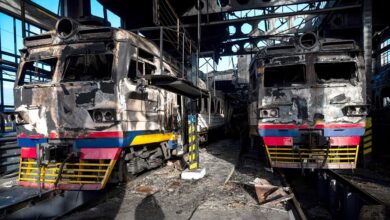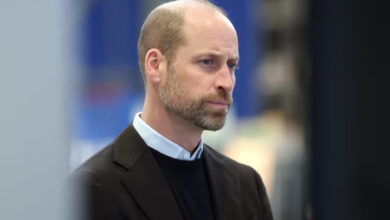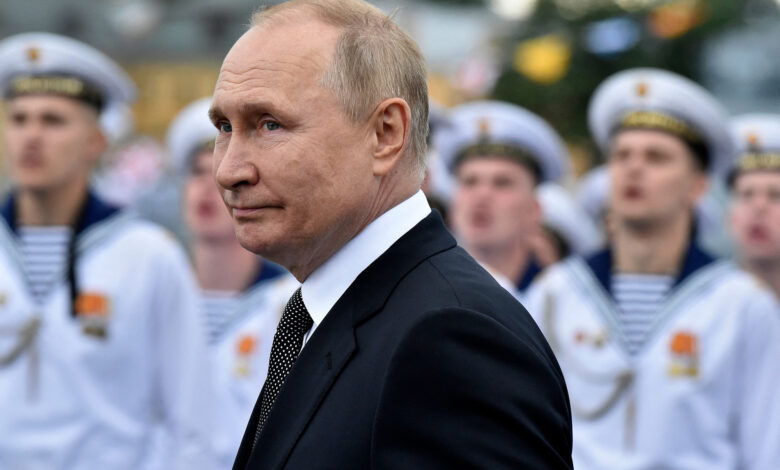
The ceremony would take place on Friday at 15:00 local time (08:00 ET) in the Kremlin’s St. George’s Hall, Putin’s spokesman Dmitry Peskov said. Putin will deliver a speech and meet with Russian-backed leaders of the four occupied regions on the sidelines of the ceremony, he added.
The announcements come after people in four occupied areas of Ukraine supposedly voted in huge numbers in favor of joining Russia, in five-day polls that were illegal under international law and dismissed by Kyiv and the West as a sham.
The so-called referendums were organized by Russian-backed separatists in the self-declared Donetsk People’s Republic (DPR) and Luhansk People’s Republic (LPR) in the eastern Donbas region, where fighting has raged since the rebels seized control of parts of Donetsk and Luhansk in 2014.
The other two areas to hold so-called referendums were Kherson and Zaporizhzhia in southern Ukraine. Russia has occupied the two regions since shortly after it invaded the country in late February. On Thursday, Putin signed decrees recognizing the two regions as independent.
Vladimir Saldo, the head of the Russian-backed administration in Kherson, urged Putin to annex the region on Wednesday, following the so-called referendum there.
The Moscow-aligned leadership in all four places claimed the processes yielded massive majorities for those “voting” in favor of acceding to Russian sovereignty: 87.05% in Kherson, 93.11% in Zaporizhzhia, 98.42% in the LPR and 99.23% in the DPR.
The process was widely panned as illegitimate, as experts said it was impossible to hold a free and fair election in a war zone or occupied territory, which United Nations Secretary-General Antonio Guterres echoed in remarks Thursday.
“They cannot be called a genuine expression of the popular will,” Guterres said of the so-called referendums.
Should Russia proceed to annex the territories, it would violate “everything the international community is meant to stand for,” Guterres said.
“Any decision to proceed with the annexation of Donetsk, Luhansk, Kherson and Zaporizhzhia regions of Ukraine would have no legal value and deserves to be condemned,” Guterres said. “It is a dangerous escalation. It has no place in the modern world. It must not be accepted.”
Meanwhile, the European Union on Wednesday proposed additional sanctions in retaliation for Moscow’s annexation plan, targeting “those involved in Russia occupation and illegal annexation of areas of Ukraine,” including “the proxy Russian authorities in Donetsk, Luhansk and Kherson and Zaporizhzhia and other Russian individuals who organized and facilitated the sham referenda in these four occupied territories of Ukraine.”
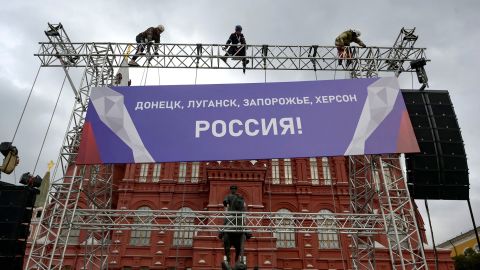
Reports from the ground suggest that voting in the occupied regions was done essentially – and in some cases, literally – at gunpoint. Serhii Hayday, the Ukrainian head of the Luhansk region military administration, said that authorities were going door to door, trailed by armed guards, to collect votes, and that local populations were being intimidated into voting to join Russia.
The results also contradict data from before the war. An exclusive CNN poll of Ukrainians conducted in February, just before Russia’s invasion, found just 18% of Ukrainians in the east – including the Luhansk and Donetsk regions – agreed with the statement that “Russia and Ukraine should be one country,” while 16% of Ukrainians in the south, which included the Kherson and Zaporizhzhia regions, supported it.
Putin has repeatedly framed the invasion as a reaction to pressure from the West, and did so again in a speech Thursday to the intelligence services of several former Soviet Republics.
“The West is working out scenarios for inciting new conflicts,” Putin said.
Ukraine President Volodymyr Zelensky said Tuesday the process was a “farce” that “cannot even be called an imitation of referendums.”
Zelensky also accused Russia of attempting to use the same strategy as it did when Moscow annexed Crimea in 2014. A referendum organized there, which officially saw 97% of voters back annexation, was ratified by Russian lawmakers within a week. Much of the international community did not respect that outcome, and it appears they will do the same with Tuesday’s results.
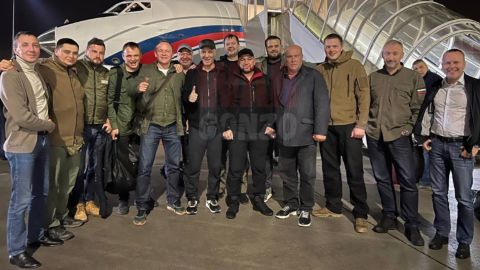
Some of the separatist leaders involved in carrying out sham referendums to secede from Ukraine and join Russia landed in Moscow Thursday, according to a photograph posted by the Russia-appointed deputy head of the Kherson regional military administration Kirill Stremousov.
LPR chief Leonid Pasechnik told Russian state news agency TASS Thursday he was also in the Russian capital.
Reuters said Thursday that a stage with giant video screens has been set up on Red Square, alongside billboards proclaiming “Donetsk, Luhansk, Zaporizhzhia, Kherson – Russia!.” TASS had previously reported that a rally would be held in front of the Kremlin on Friday in support of the poll results of the so-called referendums.
Though the Russian government is holding a ceremony Friday, its two houses of parliament – the State Duma and Federation Council – will formally meet next week to discuss the annexation.
Feared military escalation
Although the results of the Russian-backed referendums are unsurprising, there is concern Russia’s attempts to assert sovereignty over Ukrainian territory could portend a dangerous escalation in the seven-month-long war.
The Kremlin is expected to treat the territories as though they are parts of Russia, warning that it would defend them as such – signaling a potential military escalation once the Ukrainian Army attempts to reclaim them.
In an address on September 21, Putin raised the specter of nuclear weapons, saying he would use “all the means at our disposal” if he deemed the “territorial integrity” of Russia to be jeopardized.
The so-called referendums came after a sudden and successful Ukrainian offensive through most of the occupied Kharkiv region swung momentum in the conflict back towards Kyiv this month, galvanizing Ukraine’s Western backers and causing anger in Russia, which has time and again been stymied on the battlefield.
With losses piling up, Putin has enacted a “partial mobilization” of Russian citizens, meaning those who are in the reserve could be called up and nationals with military experience would be subject to conscription – and potentially sent to defend the illegally annexed territories. At the outset of the conflict, Putin was careful to emphasize that the military assault, euphemistically referred to as a “special military operation,” would only be fought by military professionals.
More than 200,000 people have traveled from Russia into Georgia, Kazakhstan and the EU since the announcement. Upwards of 50,000 Russians have fled to Finland and at least 100,000 have crossed into Kazakhstan. Images from crossings into Finland, Georgia and Mongolia show massive traffic jams on the Russian side of each border.
Protests against the partial mobilization have broken out in some of Russia’s ethnic minority regions. Ukrainian officials, including Zelensky, have alleged that Russia is forcibly drafting domestic protesters; entire segments of male populations in remote villages; and fighting-age men from minority communities as well as occupied territories in Ukraine. A Ukrainian mayor-in-exile alleged Russia was conscripting his constituents to “use them as cannon fodder.”
CNN has been unable to verify these claims.
CNN’s Nathan Hodge, Simone McCarthy, Olga Voitovych and Jo Shelley contributed to this report.

